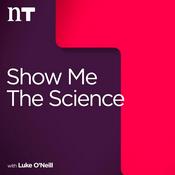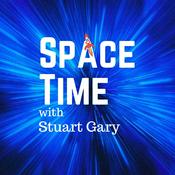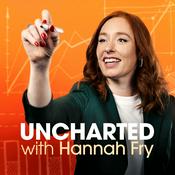76 episodes
- The media is full of stories about the coastal land loss crisis in Louisiana, dire predictions of climate change and sea level rise, and polarizing accounts of controversial projects.
What's less known is that Louisiana is really good at something. A world leader, in fact. When it comes to coastal restoration, some say Louisiana is number one. Because project by project, Louisiana is piecing this ragged shoreline back together.
Over the next four episodes of Sea Change, we're going to feature Wetlands Radio. The series is a deep dive into Louisiana's coast - both how it came to be imperiled and also the incredible things a mighty group of people is doing to fight land loss.
In part 2, we’re going to talk about building land, a vital part of coastal restoration, and often a very controversial one. We get into the thorny politics of human-led land building projects, but first, we look at how the river builds land when left to its own devices. A process many are trying to imitate.
EPISODE CREDITS
This episode was hosted by Executive Producer Carlyle Calhoun and Wetlands Radio producer Eve Abrams.
Wetlands Radio is produced by Eve Abrams and funded by BTNEP, the Barataria Terrebonne National Estuary Program through the Environmental Protection Agency's National Estuary Program. To hear Wetlands Radio episodes in their entirety, visit btnep.org.
Sea Change is a WWNO and WRKF production. We are part of the NPR Podcast Network and distributed by PRX. Sea Change is made possible with major support from the Gulf Research Program of the National Academy of Sciences, Engineering, and Medicine. Sea Change is also supported by the Water Collaborative of Greater New Orleans. WWNO’s Coastal Desk is supported by the Walton Family Foundation, the Meraux Foundation, and the Greater New Orleans Foundation. - Louisiana is a world leader in coastal restoration. Many would even say number one. The media is full of stories about the coastal land loss crisis in Louisiana, the dire predictions of climate change and sea level rise, and polarizing accounts of controversial projects, but what is also true is that Louisiana is making tremendous strides piecing this ragged shoreline back together little by little.
Over the next four episodes of Sea Change, we're going to feature Wetlands Radio. The series is a deep dive into Louisiana's coast - both how it came to be imperiled and also, the incredible things a mighty group of people are doing to fight land loss.
In part one, how did we get here? From deep geology, to efforts to control the Mississippi River, to the boom days of oil and gas, we discover the backstory that led to the start of coastal restoration.
EPISODE CREDITS
This episode was hosted by Executive Producer Carlyle Calhoun and Wetlands Radio producer Eve Abrams.
Wetlands Radio is produced by Eve Abrams and funded by BTNEP, the Barataria Terrebonne National Estuary Program through the Environmental Protection Agency's National Estuary Program. To hear Wetlands Radio episodes in their entirety, visit btnep.org.
Sea Change is a WWNO and WRKF production. We are part of the NPR Podcast Network and distributed by PRX. Sea Change is made possible with major support from the Gulf Research Program of the National Academy of Sciences, Engineering, and Medicine. Sea Change is also supported by the Water Collaborative of Greater New Orleans. WWNO’s Coastal Desk is supported by the Walton Family Foundation, the Meraux Foundation, and the Greater New Orleans Foundation. - The amazing science behind understanding mysterious but critical ocean currents. And specifically, understanding the current in our backyard, the Gulf’s Loop Current.
We talk with scientists leading a huge multi-country research collaboration that is going to great lengths and depths to understand the especially unknown Loop Current. We talk about how currents connect us, how they are basically a thermostat for the globe, and why, more than ever before, we need to understand them.
EPISODE CREDITS
This episode was hosted by executive producer Carlyle Calhoun. Our theme music is by Jon Batiste, and our sound designer is Emily Jankowski.
Scientists featured in this episode are paleo oceanographer Audrey Morley from the University of Galway, oceanographer Amy Bower from the Woods Hole Oceanographic Institution, oceanographer Steve DiMarco from Texas A&M, and oceanographer Scott Glenn from Rutgers University.
Sea Change is a WWNO and WRKF production. We are part of the NPR Podcast Network and distributed by PRX. Sea Change is made possible with major support from the Gulf Research Program of the National Academy of Sciences, Engineering, and Medicine. Sea Change is also supported by the Water Collaborative of Greater New Orleans. WWNO’s Coastal Desk is supported by the Walton Family Foundation, the Meraux Foundation, and the Greater New Orleans Foundation. - This is part 2 of a 2-part series exploring the future of farming seafood in the Gulf. We know this: demand for seafood is soaring. We won't be able to sustainably meet that demand from wild-caught fisheries. And there’s a growing global movement to farm more and more of our seafood.
The Gulf is one of the LAST places in the world where there is still a major wild oyster harvest. Lately, though, that harvest…is in trouble. In this episode, we ask: What can the downfall and resurrection of the oyster tell us about a future of farming the ocean?
EPISODE CREDITS
This series is produced in partnership with the Food and Environment Reporting Network. This episode was hosted by Carlyle Calhoun and Boyce Upholt. Boyce also reported this episode. Editing by Jack Rodolico. Carlyle Calhoun is the executive producer. The episode was fact-checked by Garrett Hazelwood. Our theme music is by Jon Batiste, and our sound designer is Emily Jankowski.
Sea Change is a WWNO and WRKF production. We are part of the NPR Podcast Network and distributed by PRX. Sea Change is made possible with major support from the Gulf Research Program of the National Academy of Sciences, Engineering, and Medicine. Sea Change is also supported by the Water Collaborative of Greater New Orleans. WWNO’s Coastal Desk is supported by the Walton Family Foundation, the Meraux Foundation, and the Greater New Orleans Foundation. - This is part 1 of a 2-part series exploring the future of farming seafood in the Gulf. Americans eat a lot of farmed seafood — but the vast majority of it comes from overseas. We just don’t farm fish on a big scale in U.S. waters. Now that might start to change. There are proposals to build massive fish farms in U.S. federal waters. And guess which coast is likely to be the first home for these new farms? You guessed it, the Gulf.
So is this a miracle cure or a looming ecological disaster?
EPISODE CREDITS
This series is produced in partnership with the Food and Environment Reporting Network. This episode was hosted by Carlyle Calhoun and Boyce Upholt. Boyce also reported this episode. Editing by Jack Rodolico. Carlyle Calhoun is the executive producer. The episode was fact-checked by Garrett Hazelwood. Our theme music is by Jon Batiste, and our sound designer is Emily Jankowski.
Voices featured at the top of the episode in order of appearance: Melvin Jackman in Newfoundland, Fay Orfanidou in Greece, Nick Underdown in Scotland, and Leticia Caro and Claudio Carocca in Chile.
Sea Change is a WWNO and WRKF production. We are part of the NPR Podcast Network and distributed by PRX. Sea Change is made possible with major support from the Gulf Research Program of the National Academy of Sciences, Engineering, and Medicine. Sea Change is also supported by the Water Collaborative of Greater New Orleans. WWNO’s Coastal Desk is supported by the Walton Family Foundation, the Meraux Foundation, and the Greater New Orleans Foundation.
More Science podcasts
Trending Science podcasts
About Sea Change
Living on the coast means living on the front lines of a rapidly changing planet. And as climate change transforms our coasts, that will transform our world.Every two weeks, we bring you stories that illuminate, inspire, and sometimes enrage, as we dive deep into the environmental issues facing coastal communities on the Gulf Coast and beyond. We have a lot to save, and we have a lot of solutions. Join us as we investigate and celebrate life on a changing coast. It’s time to talk about a Sea Change.Based in New Orleans, Sea Change is a production of WWNO New Orleans Public Radio and WRKF Baton Rouge Public Radio. Sea Change is a part of the NPR Podcast Network and is distributed by PRX. Hosted by Carlyle Calhoun. Our theme song is by Jon Batiste.Sea Change is made possible with major support provided by The Gulf Research Program of the National Academies of Sciences, Engineering, and Medicine and The Water Collaborative. The Coastal Desk is supported by the Walton Family Foundation, the Greater New Orleans Foundation, and the Meraux Foundation.
Podcast websiteListen to Sea Change, Get Birding and many other podcasts from around the world with the radio.net app

Get the free radio.net app
- Stations and podcasts to bookmark
- Stream via Wi-Fi or Bluetooth
- Supports Carplay & Android Auto
- Many other app features
Get the free radio.net app
- Stations and podcasts to bookmark
- Stream via Wi-Fi or Bluetooth
- Supports Carplay & Android Auto
- Many other app features


Sea Change
Scan code,
download the app,
start listening.
download the app,
start listening.






































